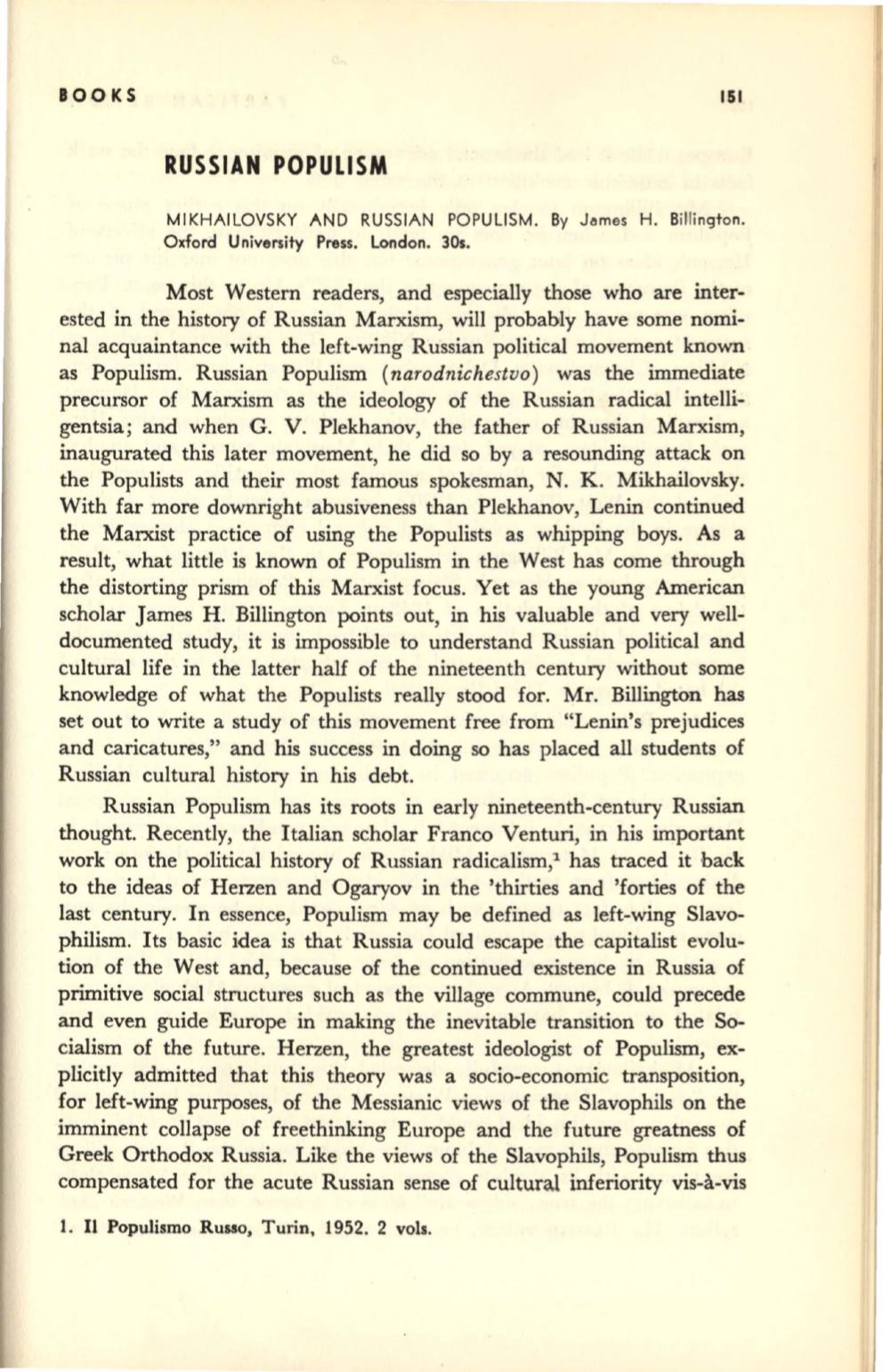
lOOKS
151
RUSSIAN POPULISM
MIKHAILOVSKY AND RUSSIAN POPULISM . By Jomes H. Billington.
Oxford University Press. London. 30s.
Most Western readers, and especially those who are inter–
ested in the history of Russian Marxism, will probably have some nomi–
nal acquaintance with the left-wing Russian political movement known
as Populism. Russian Populism
(narodnichestvo)
was the immediate
precursor of Marxism as the ideology of the Russian radical intelli–
gentsia; and when G . V. Plekhanov, the father of Russian Marxism,
inaugurated this later movement, he did so by a resounding attack on
the Populists and their most famous spokesman, N. K . Mikhailovsky.
With far more downright abusiveness than Plekhanov, Lenin continued
the Marxist practice of using the Populists as whipping boys. As a
result, what little is known of Populism
in
the West has come through
the distorting prism of this Marxist focus. Yet as the young American
scholar James H. Billington points out, in his valuable and very well–
documented study, it is impossible to understand Russian political and
cultural life in the latter half of the nineteenth century without some
knowledge of what the Populists really stood for. Mr. Billington has
set out to write a study of this movement free from "Lenin's prejudices
and caricatures," and his success in doing so has placed all students of
Russian cultural history in his debt.
Russian Populism has its roots in early nineteenth-century Russian
thought. Recently, the Italian scholar Franco Venturi, in his important
work on the political history of Russian radicalism,"!. has traced it back
to the ideas of Herzen and Ogaryov in the 'thirties and 'forties of the
last century. In essence, Populism may be defined as left-wing Slavo–
philism. Its basic idea is that Russia could escape the capitalist evolu–
tion of the West and, because of the continued existence in Russia of
primitive social structures such as the village commune, could precede
and even guide Europe
in
making the inevitable transition to the So–
cialism of the future. Herzen, the greatest ideologist of Populism, ex–
plicitly admitted that this theory was a socio-economic transposition,
for left-wing purposes, of the Messianic views of the Slavophils on the
imminent collapse of freethinking Europe and the future greatness of
Greek Orthodox Russia. Like the views of the Slavophils, Populism thus
compensated for the acute Russian sense of cultural inferiority vis-a.-vis
1.
11 Populismo
RUllO,
Turin, 1952. 2 voh.


